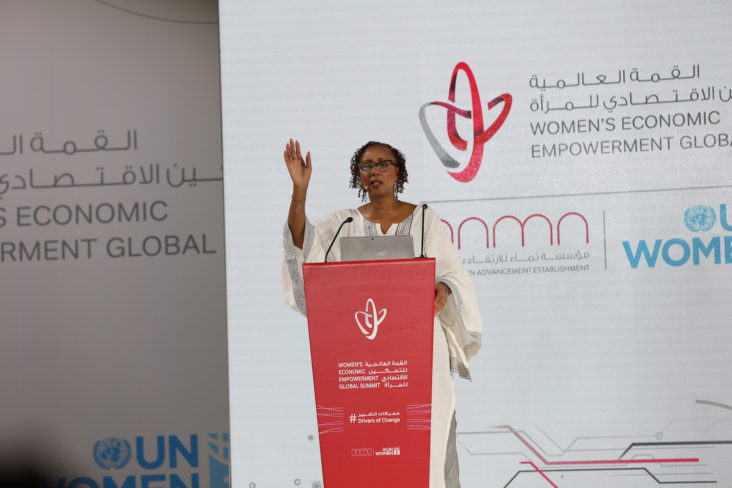WEEGS 2019: Offering Women One Additional Percent Of The Trillion Dollar Public Contracts Generated Globally Will Transform Economies

The Women’s Economic Empowerment Global Summit (WEEGS) today heard how procurement can pave the way to economic advancement for both women and countries. During her keynote speech Anne Githuku-Shongwe, Representative for UN Women’s South Africa Multi-Country Office, highlighted how African governments had driven women’s economic empowerment as well as entrepreneurship through awarding lucrative contracts to women.
“Governments hold billions in procurement opportunities which can be given to women. This can create great opportunities for women and has become a major focus for UN Women, who seek to raise women out of poverty and empower them worldwide. We have seen how African governments are working with the private sector to unlock finance and create entrepreneurial opportunities,” she said.
Her speech came during the final session of day one, titled ‘Gender-Responsive Procurement – How to make it Happen’ that was moderated by Elizabeth Vazquez President, CEO, and co-founder of WeConnect International, with Nihal Hashish, Senior Purchasing Manager – Procter and Gamble on the panel.
In her keynote Anne warned against having procurement policies that are stuck in a rut and said when she spoke to regional businesses here, she found many had been buying from the same supplier for more than 25 years. She said, “When that situation arises you find you have a boys club which doesn’t benefit the organisation as it shuts out competition and prevents new purchasers with bright ideas from getting involved.”
Nihal Hashish said women need more confidence to come forward and offer their goods and services to big business as it made good economic sense for all involved. “At Proctor & Gamble we are aware that diversity drives performance. We have seen the value this brings from a cost and services standpoint, as a diverse supply chain helps our business grow.”
Nihal added that when women are economically empowered, they are more likely to buy their goods – so ensuring that they are part of the Proctor & Gamble supply-chain makes sound business sense.
Anne explained that UN Women was looking specifically at procurement as it holds so much economic potential for women. In the 2016 financial year alone, the US Federal Government spent $461 billion on contracts. Anne explained if just 1 additional percent of that was awarded to women it would be transformative. “The public sector can decide to move this procurement opportunity to women, and then do it – effectively moving that economy into women’s hands. But we have to guide purchasers first; convince them it makes business sense. It is the only way to ensure global economies keep growing,” she added.
However, she said, there were barriers. “We have to find the female suppliers first and we do that through inviting them to events, ensuring they are legally compliant and empowering them anyway we can.”
On wrapping up the moderator highlighted the great work of the panellists and keynotes over the course of ay and said that day two had more exciting sessions lined up.
The second edition of WEEGS supports the United Nation 2030 Agenda’s Sustainable Development Goals (SDGs), which were adopted by the organisation’s General Assembly in September 2015. The summit reaffirms NAMA Women Advancement Establishment (NAMA)’s dedication to bringing together business and opinion leaders and decision makers from public, private and non-profit sectors on one global platform in Sharjah to lead vibrant and action-oriented discussions focused on developing current strategies and exploring potential opportunities to enhance equitable opportunities for women.
WEEGS 2019 is taking place at the Jawaher Reception and Convention Centre on December 10 – 11, and is organised by NAMA in collaboration with UN Women.


